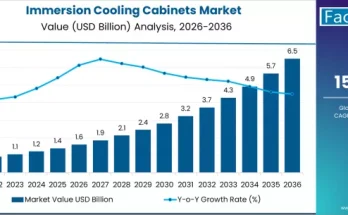In today’s digital age, data has become a valuable asset for businesses across various industries. The insurance sector is no exception. With the vast amounts of data generated daily, insurance companies have recognized the need to leverage analytics to make informed decisions and gain a competitive edge. This has given rise to the insurance analytics industry, which focuses on extracting meaningful insights from data to optimize operations, enhance customer experiences, and mitigate risks.
According to Fact.MR’s report on global insurance analytics, the industry is projected to reach a valuation of US$ 49 billion by 2033.
The future of the insurance analytics industry looks promising, with several areas of growth and innovation.
Important Points to Consider about the Insurance Analytics Industry
1. Enhanced Underwriting and Risk Assessment: Insurance analytics enable companies to assess risks more accurately and make informed underwriting decisions. By analyzing historical data, insurers can identify patterns and trends that help them assess the likelihood of claims and determine appropriate premiums. This helps in reducing fraud, improving profitability, and ensuring fair pricing for policyholders.
2. Personalized Customer Experiences: Analytics plays a crucial role in understanding customer behavior and preferences. By analyzing customer data, insurers can personalize their offerings, provide tailored recommendations, and improve customer experiences. This allows insurers to build stronger relationships with their policyholders, increase customer satisfaction, and ultimately retain more customers.
3. Fraud Detection and Prevention: Insurance fraud is a significant concern for insurers, leading to substantial financial losses. Insurance analytics helps identify suspicious patterns and anomalies in claims data, enabling companies to detect and prevent fraudulent activities. By leveraging advanced technologies like artificial intelligence and machine learning, insurers can continuously monitor data and identify potential fraud cases in real time.
4. Claims Management Optimization: Efficient claims management is essential for insurance companies to maintain customer satisfaction and control costs. Analytics enables insurers to streamline the claims process, automate routine tasks, and reduce the time taken to settle claims. By leveraging predictive analytics, insurers can also identify high-risk claims early on and allocate resources accordingly, improving efficiency and reducing claim settlement times.
5. Improved Pricing and Product Development: Insurance analytics helps companies gain insights into market trends, competitor offerings, and customer demand. By analyzing this data, insurers can optimize pricing strategies, identify new market opportunities, and develop innovative products that cater to evolving customer needs. This enables insurers to stay ahead of the competition and drive business growth.
6. Risk Mitigation and Loss Prevention: Insurance analytics helps insurers identify potential risks and take proactive measures to mitigate them. By analyzing historical data, insurers can identify risk factors and develop risk management strategies. This includes identifying areas prone to natural disasters, analyzing historical claims data to identify patterns, and taking preventive measures to minimize losses.
Benefits of Insurance Analytics
The adoption of insurance analytics brings several benefits to insurance companies:
1. Improved Decision-Making: By leveraging analytics, insurers can make data-driven decisions, reducing reliance on intuition and guesswork. This leads to more accurate risk assessments, better underwriting decisions, and improved pricing strategies.
2. Cost Reduction: Insurance analytics helps identify areas of inefficiency and cost-saving opportunities. By streamlining processes and reducing fraudulent claims, insurers can significantly reduce operational costs and improve profitability.
3. Enhanced Customer Experience: Personalization is key in the insurance industry, and analytics enables insurers to offer tailored products and services to their customers. This leads to improved customer satisfaction, increased customer loyalty, and ultimately, higher retention rates.
4. Fraud Detection and Prevention: Insurance fraud is a significant concern for insurers, leading to financial losses. Analytics helps identify suspicious patterns and detect fraudulent activities, allowing insurers to take necessary actions and minimize losses.
Future Business Scope of Insurance Analytics
1. Advanced Technologies: The integration of advanced technologies like artificial intelligence (AI), machine learning (ML), and robotic process automation (RPA) will further enhance the capabilities of insurance analytics. These technologies will enable insurers to process vast amounts of data in real-time, automate routine tasks, and improve decision-making processes.
2. Predictive Analytics: Predictive analytics will play a crucial role in the insurance industry’s future. By utilizing historical data and advanced modeling techniques, insurers can predict future trends, customer behavior, and risks. This will enable proactive risk management and better product development.
3. Internet of Things (IoT): The increasing adoption of IoT devices, such as telematics in auto insurance or smart home devices, provides insurers with vast amounts of real-time data. Integration of IoT data with insurance analytics will enable insurers to offer usage-based insurance policies, personalized pricing, and improved risk assessments.
4. Cybersecurity and Data Privacy: As insurance companies handle sensitive customer data, ensuring data security and privacy will be of utmost importance. Insurance analytics will play a significant role in identifying potential cybersecurity threats, detecting data breaches, and protecting customer information.
5. Insurtech Collaboration: Insurtech companies are leveraging analytics to disrupt the insurance industry. Collaborations between traditional insurers and insurtech firms can lead to innovative solutions, improved customer experiences, and streamlined operations.
Conclusion
The insurance analytics industry is revolutionizing the way insurers operate by leveraging the power of data. By extracting meaningful insights, insurers can make informed decisions, optimize operations, enhance customer experiences, and mitigate risks. As the industry continues to evolve, insurance companies that embrace analytics will have a significant advantage in today’s competitive landscape.
Also Read
- Capitalizing on the Booming Aqua Gym Equipment Industry (Worth US$ 1.01 Billion)
- Unlocking the Power of Adaptive Security: Proactive Defense for Modern Threats
- Pioneering the Future of Retail Efficiency: Electronic Shelf Labels Amplify the Shopping Experience
- Next Frontier of Technology: Understanding the Wonders of Brain-Computer Interface



